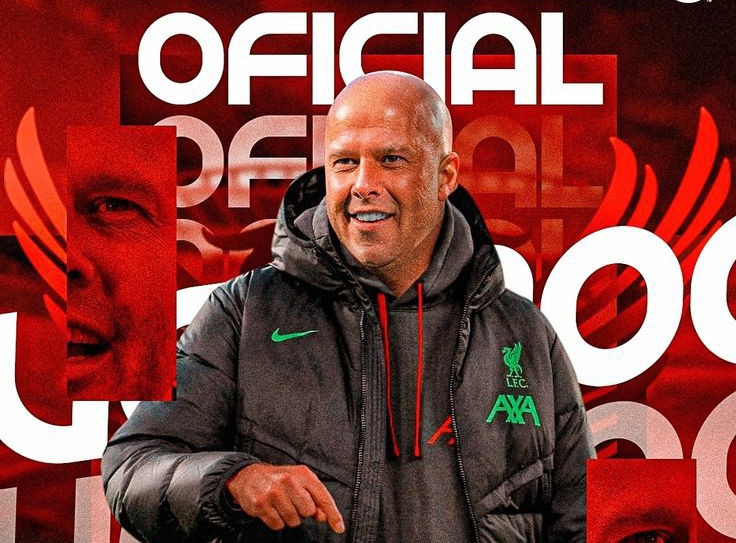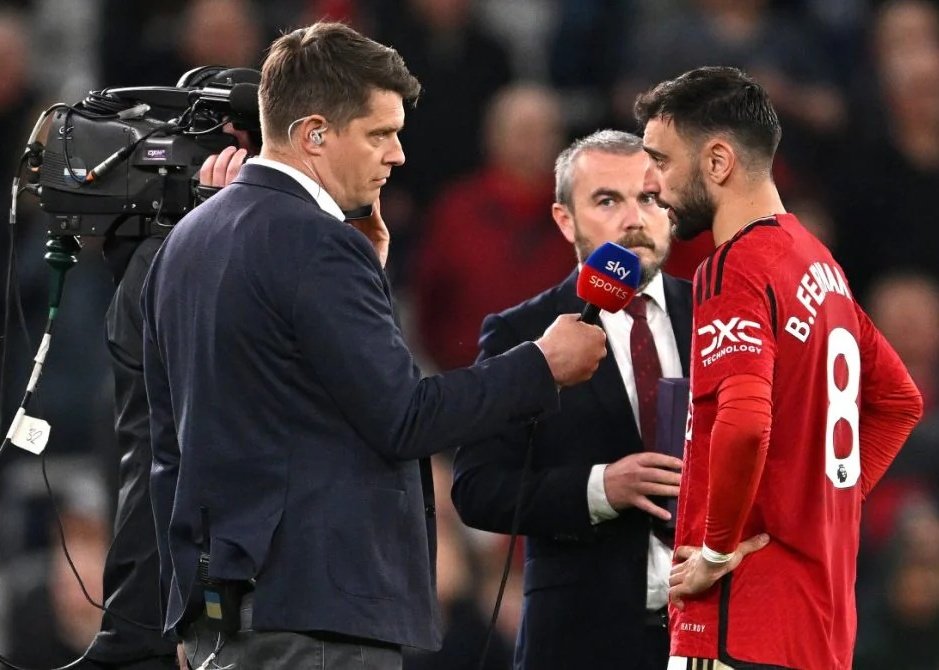Journey to coaching, playing style… All to know about Liverpool’s new coach, Arne Slot

Arne Slot has officially been named as Jurgen Klopp‘s successor and given the Liverpool job. He resumed work as the Reds manager on June 1st.
However, the name Slot is relatively new to some football fans because the 44-year-old played his entire 18 years career in Netherlands his home country making around 460 appearances for FC Zwolle, NAC Breda, Sparta Rotterdam and FC Zwolle.
Even though Slot’s playing career was not especially interesting, his former teammates claimed that he saw it as a long-term preparation for his coaching career. He began his career at PEC Zwolle, where he later made his way into the first team and helped them to the 2002 Second Division Championship.
After receiving recognition for his efforts, he moved to NAC Breda, he played for five years then concluded his career with a stint with Sparta Rotterdam and a heartfelt return to Zwolle, where he won a second league title. The only significant awards he won during his playing career were those two trophies.
Though the offensive midfielder had little luck as a football player, his coaching acumen was beginning to take hold. His former team-mate Bram van Polen admitted: “Arne was constantly working on the boys in the team during training, already clearly a trainer in the making.”
In 2013, he announced his retirement from professional football and because Zwolle saw potential in Slot, the club immediately offered him a youth-coaching position. After three years, he started his first senior coaching position at Cambuur, an Eerste Divisie team one tier below the top flight, first as an assistant and subsequently as an interim coach. Slot led the team, together with Sipke Hulshoff, from a bottom-half finish to the promotion playoffs and the Dutch Cup final after defeating Ajax in the semifinals.
More on football:
Liverpool: Why Klopp’s anticipated perfect end collapsed
AFCON 2025 postponed… See reason
Meet Enzo Maresca, Pochettino’s replacement tasked with revamping Chelsea
Like his first job at Cambuur in 2016, Slot went to AZ Alkmaar as an assistant before taking over as manager for the 2019–20 season. He guided AZ to the UEFA Europa League round of 32 in that same season and when the league was postponed due to the COVID-19 outbreak, his team was trailing Ajax on goal difference with just nine games left to play.
The fact that Slot’s team finished the previous season 28 points behind Erik ten Hag Ajax shows how much of an influence his appointment as head coach had on the team.
He had the best league point average of any coach in Alkmaar history when he left the team, averaging 2.11 points per game.
They finished third in their Champions League group and exited the Europa League after defeat by Roma in February.
Slot’s second season didn’t quite match his initial success, but he still managed to lead AZ to a respectable third-place finish. The ‘Cheese Farmers’, finished behind PSV Eindhoven, a team with significantly larger budget, by just a single point.”
With his reputation growing, Slot was picked to bring some fire back to Feyenoord after two years of lacklustre football and performance under Dick Advocaat. The early signals were positive even though leading scorer Steven Berghuis was lost to Ajax.
In his first season, Slot led Feyenoord to third place. His team scored 10 more Eredivisie goals and conceded two fewer goals than they did in Advocaat’s last campaign. They also made it to the Europa Conference League final, but Roma lost to Jose Mourinho’s Roma.
In just two seasons at Feyenoord, Slot has cemented his status as a top-tier coach, leading the team to a long-awaited Eredivisie title in 2022/23 – a feat that ended a six-year drought and marked only the second league of the century for the club. However, they lost this year’s Eredivisie title to PSV, who won by a margin of seven points.
Slot also managed to completely overhaul the club of the people’s style of play and it is no surprise that a team of Liverpool’s calibre has secured him to replace the outgoing Jurgen Klopp.
Arne Slot’s playing style
Slot’s football philosophy is unique, shaped by his admiration for Pep Guardiola’s approach. As Feyenoord’s coach, he has transformed the team into a highly offensive unit, reflected in their significant goal-scoring increase.
He draws inspiration from Guardiola’s Manchester City and Klopp’s Liverpool, aiming to replicate their possession-based style. Slot’s tactics feature a high-pressing 4-3-3 or 4-2-3-1 formation, with full-backs pushing wide and wingers moving inward to create dynamic rotations. Players are encouraged to take on opponents, resulting in Feyenoord leading the Eredivisie in progressive carrying distance this season.
When not in possession, Slot’s team aggressively press high up the pitch, making a significantly higher number of tackles in the opponent’s attacking third. If they fail to win the ball back, they swiftly transition into a compact 6-3-1 formation, expertly congesting the field and denying opponents any semblance of space or breathing room.
The 44 years old’s teams are known for using short passes to bounce the ball around opposing pressure, they frequently employs third-man runs, similar to Roberto De Zerbi’s tactical approach at Brighton & Hove Albion, where he utilizes a double pivot to create dynamic midfield combinations.
Slot’s fullbacks initially stay deep to facilitate build-up play, then surge forward to support attacks in more advanced positions. The right winger often drifts inward to support the central attacking midfielder, allowing the double pivot to break through central channels and dominate possession in the initial build-up phase.
During his time at AZ, Slot implemented a coordinated and intense press, where the winger and fullback would synchronously press opponents when they played wide, creating a temporary backline of three, with the double pivot providing defensive cover and screening in front of them.
Slot’s teams exercise restraint in their high press, opting not to overcommit. If pressing opportunities are scarce, Instead, they fluidly shift into a more defensive-minded approach, as seen during his AZ days.
The wingers would drop deep to support the double pivot, forming a 4-4-1-1 shape, where the No. 9 and 10 would interchangeably press the center-backs and protect the midfield pivot, cleverly managing the defensive space.
It is now left to see if this pattern works in the Premier League.
See more:
Meet Enzo Maresca, Pochettino’s replacement tasked with revamping Chelsea




